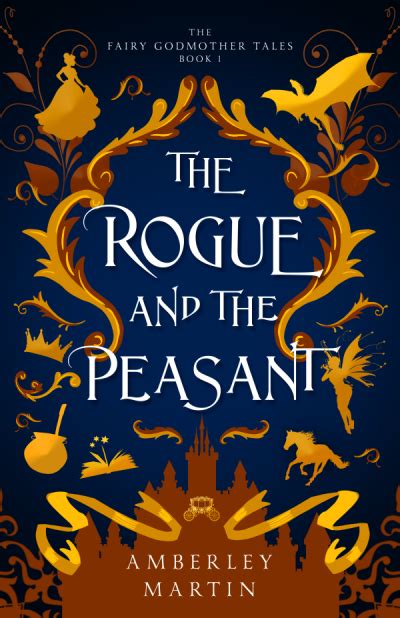
Esme is destined to be a queen. At least, that’s what her mother has always said, and Esme doesn’t doubt her, despite living like a peasant in a small village all her life, where she plays—and fights—with the miller’s children, the baker’s daughter, and the butcher’s son. She has, however, had tutors to instruct her in the subjects a queen needs to know, from the arts and sciences to deportment and diplomacy. So when she returns home one day from the village to discover a coach waiting to take her to Finishing School, Esme fights down her dismay over the abrupt departure, packs her small bag, and climbs into the coach with her head held high.
Finishing School may not be what you expect, her mother warns her while saying goodbye. Disquieting advice, as she has few preconceived notions of what Finishing School is. But whatever it should be, she is quite sure it does not involve being kidnapped on the way by a charming rogue.
To Rory, the rogue, waylaying Esme’s coach is just one more task the godmother has assigned to him. He has the script down pat: carry the purported victim off to the godmother’s tower, chivvying them along while they make a good show of righteous indignation and resistance, and keep them fed and healthy until their promised prince with a hero complex arrives to rescue them (or princess, or whatever they wished for—this world isn’t heteronormative or bound by strict gender roles). Rory has done this before, and never had any trouble, so he is caught by surprise when Esme puts up a real fight. The solid kick she lands in the middle of his chest hurts. She’s not following the script. It’s almost as if she doesn’t know there is one. She’s not responding as expected to his charm, either.
Sounds like the beginning of a generic fairy-tale romance novel, doesn’t it? It’s not.
If Esme doesn’t follow the script, neither does the book she’s in: The Rogue and the Peasant, by New Zealand author Amberley Martin. It is not a romance, although it does have things to say about friendship and families. What it is, is a fairy tale—a very modern one, with women who can take care of themselves. Martin borrows elements from lots of stories—imagine a mashup of Rapunzel, Cinderella, Labyrinth (the movie with David Bowie), and Hamlet. She tosses them together with a Dead Prince, a sword-wielding homicidal princess, giants, trolls, an extremely intelligent horse, a dragon, and more, and comes up with something deliciously original. The action is stage-managed by a vicious godmother who seems closer kin to The Godfather than to Cinderella’s saccharin fairy. The mix keeps throwing up surprises, making for a lighthearted and entertaining read.
The Rogue and the Peasant has a (mostly) happy ending, even if not a guaranteed happily-ever-after, and both Esme and Rory are appealing characters. The book is the first in a new series, The Fairy Godmother Tales. The second book, The Demi-Wolf and the Hunter, is high on my TBR list for 2023.

Sounds like a good read!